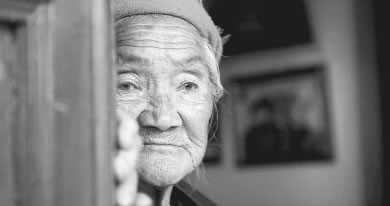Microblog Buzz
Legislating Parental Home Visits
Editor’s Note
Editor’s Note The recently held 27th session of the Standing Committee of the 11th National People's Congress deliberated on the Law of the People's Republic of China on the Protection of the Rights and Interests of the Elderly (Draft Amendment), which provides on Article 17 that supporters living apart with their supported elderly should pay frequent visits to their elderly.
This has caused much debate among China’s netizens as to whether or not visiting one’s parents or grandparents, and by extension, filial piety, should be written into the law.
In China, the law grants home leave to employees working in public organizations and government. Those living in different provinces from their parents or spouse are allocated 20 days off a year to visit them. >>more

Voices
Conclusion :

The introduction of such proposals reveals a certain embarrassment, helplessness and incompetence in the face of complex social issues. For the Chinese, being filial and supporting their parents are natural and sincere sentiments. But in this period of transition, when many moral norms and values have been forgotten, there might be a need for laws to protect them.
Stipulating in the law how often people should go home may help to preserve traditional virtues, but in order to achieve spiritual comfort, more measures need to be taken.
Support for Senior Citizens around the World:

Japan is a society with the fastest speed of aging in the world. A survey by its Ministry of Education, Culture, Sports, Science and Technology shows that the rate of aging in Japan has reached 19%, and will reach 30% by 2025. As a result, Japan attaches great importance to the issue.
For example, Japan's famous talent dispatch company, PASONA, trains senior citizens in agricultural skills and facilitates retired senior citizens to move to rural areas and farm.
The Japanese government has also implemented nursing insurance for senior citizens who are unable to care for themselves, have limited mobility or for those who have Alzheimer’s disease.

Many British senior citizens choose to relocate to countries like Spain and South Africa during their twilight years. The relatively low commodity prices in these countries mean that they can sell their houses and live a better quality of life overseas.

Long-term care insurance was established by the German welfare state in 1996 to give the elderly financial resources for a caregiver. This insurance either provides care services or cash benefits to pay for a private caregiver, such as a family member.
If a family opts for the long-term care insurance to provide care services, they can attain these services through private agencies; otherwise, they would receive cash benefits that could be used to pay a family member or other individual for informal care services.

A senior citizen prepares for a beauty contest organized by her nursing home.
For senior citizens who live alone, home-sharing can give them the spiritual support they need. The system matches those who share the same hobbies and are around the same age in pairs to share homes. This can be a good way to establish supportive friendships and save on living expenses.

The system for the elderly in Canada parallels the country’s universal health care,which has also won praise for being simpler and more efficient because the govemment pays all health bills.

Senior citizen healthcare in Singapore is multi-sectoral, involving the individual, family, community, certain non-profit organizations, the commercial sector, and the government.
The government ministries that play significant roles in the care of the elderly are the Ministry of Community Development and the Ministry of Health. However, the government prefers not to take a hands-on ‘provider’ role in long-term care of the elderly, but acts more as a policy maker, planner, fund provider and regulator.
Senior citizen care chiefly uses health promotion and disease prevention strategies to enable the elderly to remain fit and active for as long as possible. Likewise, those who are struggling with health issues should be cared for in the community and institutionalization should be a measure of last resort.
Comment on This Topic
Email:website@womenofchina.cn


 WeChat
WeChat Weibo
Weibo 京公网安备 11010102004314号
京公网安备 11010102004314号